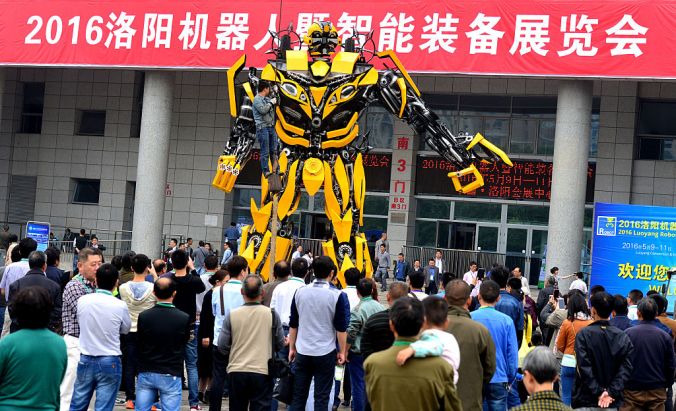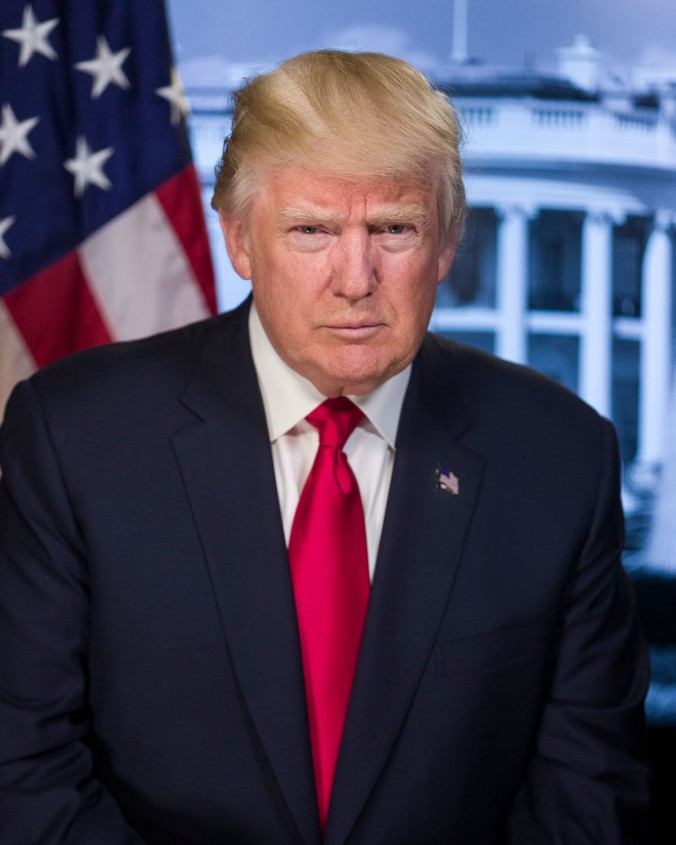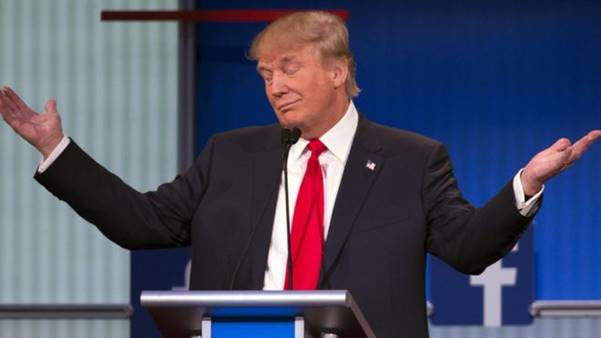
Image source: VCG via Getty Images
AN OPINION PIECE
We all know that countries aren’t really created equal. Yes, the principle of sovereignty, the practice of diplomacy, and the formats of most international institutions uphold the idea that countries are equal partners and that each one has an equal say in the running of the world. But it shouldn’t be too much of a controversy to state that some countries are more powerful than others. Even the UN recognizes this, with its Security Council that neatly aligns with the victorious powers of World War II.
What makes these countries more powerful than others? Their militaries, of course. Big armies and scary technology have been used throughout history to coerce weaker countries into doing what the strong country wants. When backed up by a smoothly functioning political system and bureaucracy, the power imbalance can be steep. Followers of the “realist” school of international relations say that this hard power is all that really matters: international relations is a contest for supremacy, and barring an unexpected event like a stupid political decision, the strong countries win and boss around everyone else.
This is basically true, but it would be inaccurate to just boil international relations down to that. (Otherwise, small, weak countries would have no chance.) Soft power plays a role as well. This concept, pioneered by the Harvard professor and former American defense official Joseph Nye, emphasizes other aspects of international power: culture, values and foreign policies. They may not make you tremble like nuclear weapons or aircraft carriers do, but subtly and over a long time, they are effective too.
“Liberals” and “constructivists,” the other factions in the academic world of international relations, have always emphasized the importance of values. If a country is seen as sharing your values, you’ll be more likely to ally with them or at least rely on them as a partner. If a country is not seen as sharing your values, the fear and suspicion that underlies much of diplomacy is only increased. Similarly, the way countries behave towards each other influences perceptions, even among bystander countries. A country with a track record of bullying, unpredictability and/or unreliability will find its diplomatic efforts stymied compared to one known for promoting peace, human rights and fair play.
I find culture to be the most fascinating aspect of this, since it’s such a slippery subject — hard to quantify, hard to evaluate, it’s usually overlooked or dismissed as a relevant factor in the cold hard world of international relations. But I think it subtly affects IR too. (This is one reason this blog occasionally covers cultural topics in addition to more newsworthy stuff.) For the most part, countries are drawn to those that share their culture, or have a similar one. History is littered with examples of alliances forged through shared cultural understanding: Imperial Germany’s interests may have lain with an alliance with powerful, influential Russia, but it ended up choosing Austria-Hungary mostly because of a shared Germanic culture and disdain for Russia’s Slavic culture. America and Britain may have important shared interests, but their alliance is cemented by a shared culture, language and history. The Commonwealth, Britain’s post-imperial club, mostly runs on these factors.
In the long run, the sense of a “superior” culture worth emulating accords certain countries a special status and deference from those who might be their equals or superiors politically. For most of ancient history, Greece was a mess politically speaking, but its sophisticated culture earned it a cachet from its neighbors and respect from its stronger adversaries, Persia and Rome. China commanded similar awe and emulation (although in that case it was helped by its size, strength, and resources). In general, religion is a particularly strong glue; the Arabs clashed numerous times with their neighbors, but the wide appeal of Islam and the prevalence of Arabic elevates them above their sometimes chaotic political situation.
The most subtle, underappreciated form of soft power might be plain and simple recognition. Let’s face it: not all countries are equally well-known, either. Guinea-Bissau is not as familiar as Mexico. Mozambique probably sounds like a made-up country to most of the world, but almost everyone has heard of China. Fame gives European countries in particular extra clout; Britain, France and Germany are among the most well-known countries in the world, and it’s very common for members of the global elite to at least visit them. Countries of similar size elsewhere, like the Congo, Iran or the Philippines, don’t get as much attention, which surely has an effect on the way they are treated.
When it comes to which country commands the most soft power, the question is hardly in dispute: America rules the roost. It may be proud of its enormous hard power, but soft power is the other tool in its arsenal. America’s political and economic systems are widely used models. It attracts lots of immigrants, increasingly from all over the world. Its universities are top-of-the-line. The globe is in thrall to American pop culture: look at how familiar American superheroes, American rappers, and American sitcoms are from the rich West to poor Africa. Thanks in part to the prevalence of English, even relatively mundane happenings in America attract international attention. It is true that American foreign policy doesn’t always command respect — George Bush’s cowboy attitude and dumb decision to invade Iraq made it rued around the world, and as Joseph Nye himself points out, America’s current president has done a lot to remind everyone of America’s negative qualities like vanity, ignorance and bullying bluntness. But it is famous, and its values and culture are broadly attractive.
The West in general commands a lot of soft power. Thanks to European imperialism, the world as a whole has been shaped in the Western image, and it would be nearly impossible to teach recent world history without discussing the West in some way. Europe is still the world’s biggest tourist draw. Its lingering historical prestige, combined with its present-day combination of cozy antique villages and a comfortable modern lifestyle sustained by generous welfare, go a long way in masking its long-term decline as an international player. Thanks in no small part to their colonialism, Britain and France are more familiar to many countries than their own neighborhoods. Germany, the Netherlands, Sweden and Canada have become immigrant magnets despite their light hard power credentials.
The other soft power titan? Japan. With a constitutional restriction on its hard power projection capability, Japan has pretty much banked on soft power to increase its clout. It has worked very well: Japanese technology is used all over the world, Japanese culture is among the most familiar outside of the West, tourism is booming, and Japanese characters from Pokemon to Gundam are the strongest rivals to America’s pantheon of pop culture icons. Although it is now a bit passe, in previous eras Japan was widely admired for modernizing rapidly along Western models while keeping its culture intact. While all this is important, Japan’s soft power is hobbled somewhat by various, mostly minor issues that regularly appear in the news (suicides, creepy fetishes, overwork, etc.), its hostility to immigrants and foreigners in general, and its terrible reputation among its immediate neighbors.
Probably the most discussed topic in soft power conversations these days — as in so many foreign policy discussions — is China. As mentioned earlier, China has historically been a soft power giant, exporting everything from philosophy to urban planning to its neighbors. But lately, its image has suffered somewhat, aside from die-hard Communists in the Maoist era. It is as often associated with rampant greed and bossing around its neighbors as it is with anything positive. For a long time, China didn’t really care, but beginning in the ’90s Nye’s theory started circulating in Chinese intellectual circles. Eager as always to compete with America and cultivate an image as a peaceful power, China has begun to aggressively promote its soft power. Confucius Institutes all over the world teach Chinese language and handicrafts; Chinese cultural performances are heavily marketed; the Chinese New Year is celebrated overseas; even Confucius (Master Kong), once demonized by the Communists, has been rehabilitated and rebranded as an icon of a gentle, wise China.
These campaigns are only a little over a decade old, so their efficacy is probably too soon to judge. Whatever their merits, China already has a great deal of soft power on account of its fame and attributes like dim sum, taiji, and Jackie Chan. But China’s efforts seem doomed to fail, or at least disappoint, for 2 reasons: 1, they’re state-led, while the vibrancy and appeal of, say, Japan’s pop culture is organic; and 2, it is unclear whether an appreciation for a country’s culture will necessarily lead to an endorsement of that country’s values and foreign policy — which is the point of all of this. Plenty of people enjoy The Big Bang Theory and KFC while railing about American imperialism.
Other countries also wield outsized clout thanks to their soft power. South Korea’s movies, pop groups and TV dramas have won it many fans throughout Asia. India’s movies, religious practices, and — to a lesser extent — music have gone a long way in giving it a more benign image than China and ameliorating negative impressions of India abroad. Even countries like Nigerian and Turkey, who are more often thought of as places to emigrate from, have acquired a bit of a “cool” status thanks to their pop cultures and vibrant societies. These countries would do well to encourage their creative industries to cash in on their burgeoning cachets.
So what, say the realists. Why does any of this matter? At the end of the day, it’s hard power — military might, diplomatic skill, and cold, hard cash — that settles things. Why does it matter that Russia (for example) has a dearth of soft power? If it wants to, it can step in and smoosh its neighbors. Would a fondness for French wine make one less willing to resist a French invasion? Would cute Japanese mascot characters make one more likely to surrender in a trade dispute?
Probably not. Hard power continues to be the most important element of international relations. But I think that in the day-to-day conduct of international affairs, when countries aren’t always at each other’s throats, soft power does play an important role. What academics call “normative biases” do affect thinking and decision-making. Even if governments use a more rational calculus of their interests, their citizens are affected by soft power, and governments usually reflect the popular will. American pop culture saturation makes it hard to conceive of the Philippines actually breaking its alliance with the US. Peaceful images like meditating sadhus and damsels warbling love songs make it hard for anyone but Pakistanis to think of India as a truculent power. Cultural and media exposure have created a bond between North America, South Korea, Japan and Europe that does much to reinforce their formal alliances. And frankly, soft power makes it more likely for people to care about other countries. Sometimes, simple awareness makes a lot of difference.
NOTE: There seems to be some disagreement whether economic power counts as “hard” or “soft.” On one hand, money is definitely powerful, and a state of economic dependence can be as crippling as military occupation. On the other hand, “hardness” is often equated with force or the threat of using force, while money is seen as a way to persuade rather than coerce. The best answer seems to be that it depends on how economic power is used, as this article argues.

